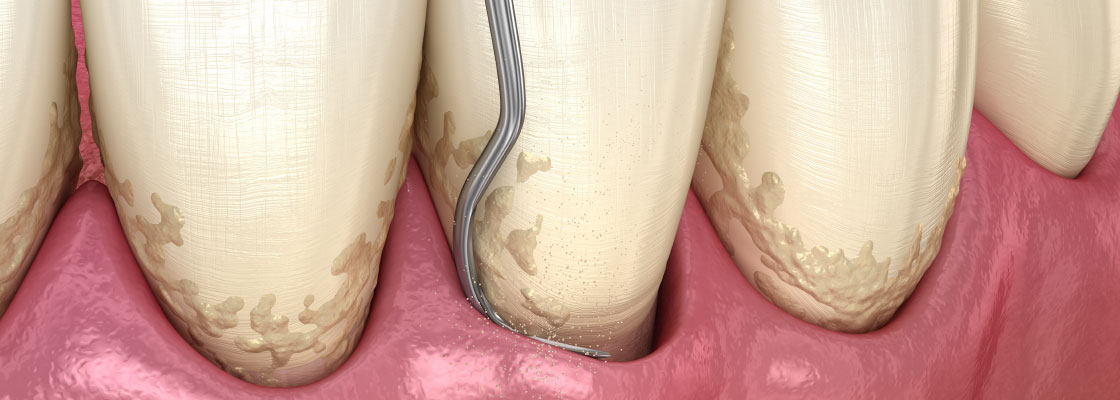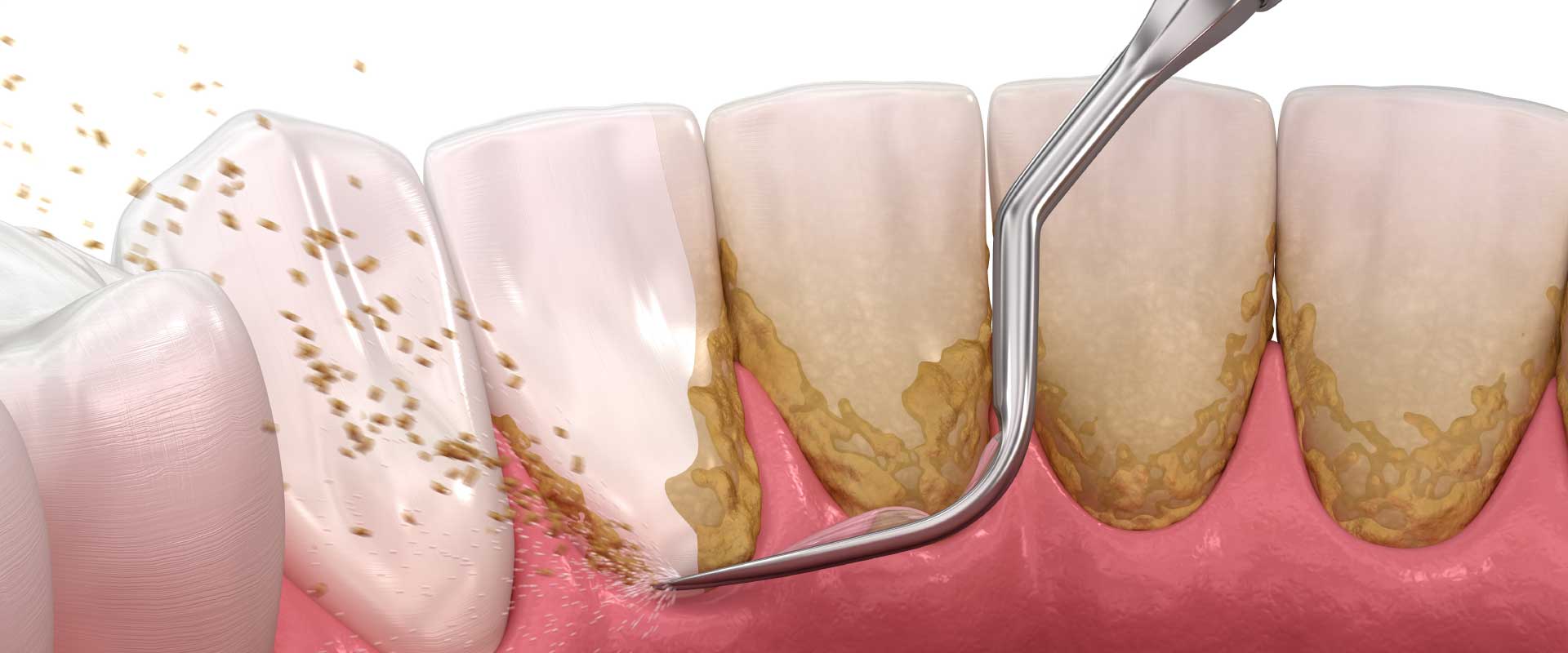Periodontitis, also referred to as gum disease, is extremely common and affects nearly half of all adults over the age of 30. There are many risk factors that influence gum disease including hygiene and dietary habits, medications, tobacco use, as well as genetics. Tartar buildup between teeth that is not regularly removes allow for harmful bacteria to grow. Bone and tooth loss can occur if this bacteria isn’t removed.

What are the signs of periodontal or gum disease?
The earliest sign of gum disease is an irritated, bleeding gum line that is persistent even with constant brushing and flossing. Other signs include bad breath, receding gums, and loose teeth. Depending on the severity of the gum disease, treatment ranges from deep cleanings, also known as scaling and root planing, to bone grafting and surgery. It is especially important to watch out for these signs of periodontal disease because this disease does not cause pain. If left untreated, gum disease can spread to the bone and will lead to tooth loss.

Is gum disease bad for your health?
Yes, gum disease is the cause of several health problems. Some of these problems include: strokes, diabetes, heart disease, dementia, and even problems in pregnancy. The theory is a large accumulation of harmful bacteria has constant access to the bloodstream through the gums. Once in the bloodstream, the bacteria can travel to every part of the body and cause damage.